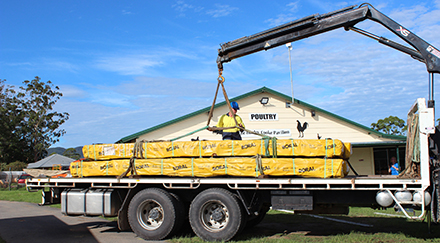Wood value chains have been hard-hit by the COVID-19 pandemic, but the side effects of the crisis have not all been negative for the sector, according to a new FAO policy brief. Source: Timberbiz
Impacts of COVID-19 on wood value chains and forest sector response summarizes the findings from a global survey on the impacts of the crisis on wood value chains and makes recommendations for harnessing their contributions to the post-COVID-19 recovery phase.
More than 200 stakeholders representing all segments of wood value chains responded to the survey, including the private sector, forest and farm producer organizations, governments and academics. Responses came from almost all regions, with highest participation from Africa.
“Disruptions to production and trade of forest products associated with the COVID-19 crisis have put essential livelihoods and forest-based industries at risk,” said Senior FAO Forestry Officer Thais Linhares Juvenal.
“Providing countries with a clearer picture of how different segments of wood value chains have been experiencing the pandemic will help them to better integrate sustainable wood value chains in COVID-19 recovery and stimulus programs.”
Risks and opportunities
Among the negative effects of COVID-19 on wood value chains were the temporary closure of commercial outlets and reduction of salaries, impacting livelihoods. Respondents were also concerned about the risks to forest governance, including monitoring and enforcement, illegality and tenure rights, as well as decreased financial resources to implement sustainable forest management.
However, respondents believed that response to the COVID-19 pandemic may have some positive effects on the sustainability of the sector, such improved health and safety standards along wood value chains, and adoption of digital technologies in recovery strategies.
“The wood sector may emerge from the crisis with higher social and operational standards and social measures,” the brief states.
The brief suggests a series of policy recommendations to address the vulnerabilities of wood value chains and build on emerging opportunities to reduce poverty and increase sustainable forestry. These include making wood value chains part of recovery strategies and measures and promoting the trade and consumption of legal and sustainable wood products. The brief also recommends supporting smallholders, communities and small and medium forest enterprises (SMFEs) in value chains by providing adequate finance as well as incentives for increased organization, including horizontal and vertical integration.
The policy brief was compiled by FAO and is a product of the
Sustainable Wood for a Sustainable World and a joint initiative of the Collaborative Partnership on Forests.
The paper can be downloaded here: Impacts of COVID-19 on wood value chains and forest sector response






